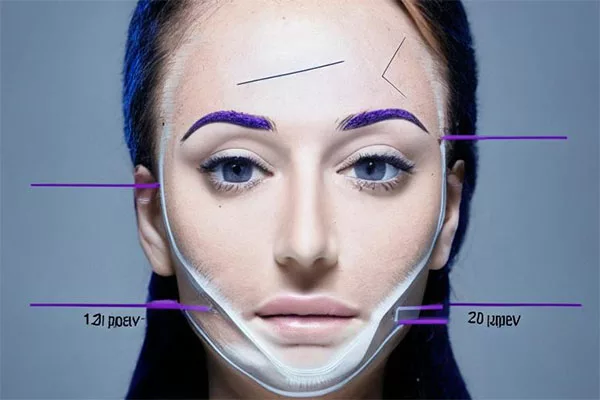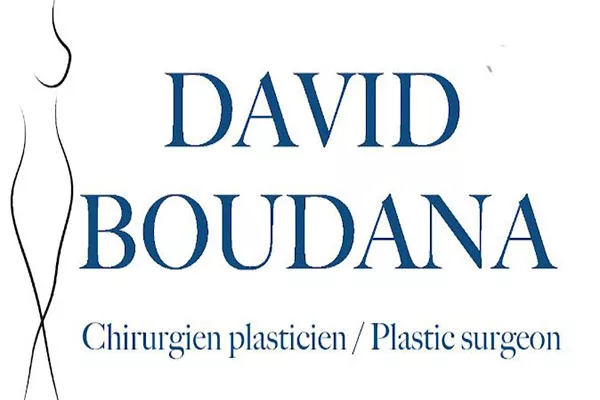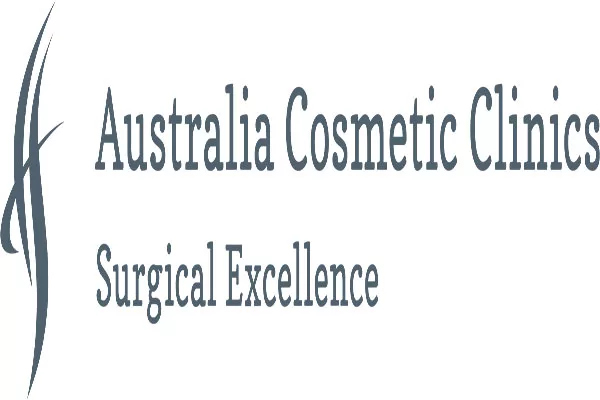Complications (Problems)
Plastic surgery is a procedure that alters the appearance or function of a part of the body, typically through cosmetic or reconstructive surgery. While plastic surgery can greatly improve a person’s self-confidence and quality of life, it is important to keep in mind that there are potential complications associated with any surgical procedure. It is ultimately up to the patient to weigh the possible risks against the benefits and decide if the benefits outweigh the risks.
Here are some of the most common complications associated with plastic surgery:
- Infection: Any surgical procedure carries a risk of infection, and plastic surgery is no exception. Patients undergoing plastic surgery are at risk for infections at the incision site or within the surgical pocket.
- Hematoma: A hematoma is a collection of blood outside of a blood vessel, often caused by trauma. Hematomas can occur after plastic surgery and can cause swelling, pain, and other complications.
- Seroma: A seroma is a collection of fluid that can occur under the skin after surgery. They are typically non-threatening and will eventually reabsorb on their own, but in some cases, they may require surgical drainage.
- Nerve damage: Plastic surgery procedures can sometimes damage sensory or motor nerves, resulting in numbness, tingling, or muscle weakness in the affected area.
- Blood loss: Plastic surgery procedures require incisions, which can result in blood loss. While losing some blood is normal during surgery, excessive blood loss can lead to complications and, in rare cases, may be life-threatening.””6. Scarring: Scarring is a natural part of the healing process, but some patients may develop severe or noticeable scars after plastic surgery procedures. This can be especially concerning for procedures that involve visible areas of the body, such as the face or hands.
- Anesthesia complications: General anesthesia is typically used for most plastic surgery procedures, and there is always a risk of complications related to anesthesia. These can include allergic reactions, respiratory issues, and in rare cases, death.
- Blood clots: Any major surgery, including plastic surgery, can increase the risk of blood clots forming in the legs or lungs. Blood clots can be serious and even life-threatening, so it is important for patients to follow their surgeon’s instructions for post-operative care and to stay active to prevent blood clots from forming.
- Implant-related complications: Patients who receive implantable devices, such as breast implants or dermal fillers, may experience complications related to the implants themselves. For example, breast implants can rupture or leak, and dermal fillers can cause allergic reactions or infections.
- Unsatisfactory results: Finally, some patients may be disappointed with the results of their plastic surgery procedure. This can be due to a variety of factors, such as unrealistic expectations or poor surgical technique. It is important for patients to research their surgeon and procedure thoroughly and to discuss their goals and expectations with their surgeon before undergoing surgery.
Preventing Plastic Surgery Complications
While there is no way to completely eliminate the risk of complications associated with plastic surgery, there are steps that patients can take to minimize their risk:
- Choose a qualified surgeon: The surgeon you choose for your procedure makes a significant difference in your overall risks and outcomes. It is important to do your research and choose a surgeon who is board-certified and experienced in performing the specific procedure you are considering.
- Discuss your medical history: Be honest and thorough when discussing your medical history with your surgeon. Certain medical conditions, medications, and lifestyle factors can increase your risk of complications during and after surgery, so it is important for your surgeon to have a complete picture of your health.
- Follow pre-operative instructions: Your surgeon will provide you with specific instructions to follow in the days and weeks leading up to your surgery. These may include abstaining from certain medications, stopping smoking, or avoiding certain foods. It is important to follow these instructions carefully to reduce your risk of complications.
- Communicate with your surgeon: If you have any questions or concerns before or after your surgery, do not hesitate to contact your surgeon. Open communication is key to ensuring the best possible outcome from your procedure.
- Follow post-operative care instructions: After your surgery, your surgeon will provide you with specific instructions for post-operative care, such as changing dressings or avoiding certain activities. It is crucial to follow these instructions closely to reduce your risk of complications and to promote proper healing.
Recovering from Plastic Surgery: What to Expect
Recovery from plastic surgery varies depending on the procedure, but there are some general guidelines that patients can expect to follow:
- Rest and recovery: Your surgeon will likely recommend that you take it easy for several days following your procedure. This may mean taking time off work or limiting your physical activity. It is important to give your body time to heal.
- Managing pain and discomfort: Although pain and discomfort are normal after any surgery, your surgeon will provide you with instructions for managing these symptoms. This may include medications, ice packs, or other remedies.
- Follow-up appointments: You will likely be scheduled for follow-up appointments with your surgeon to monitor your progress and ensure that you are healing properly.
- Scarring: Scar formation is a natural part of the healing process, but your surgeon may provide you with instructions for minimizing scar formation, such as applying scar creams or wearing compression garments.
- Returning to normal activities: Depending on the procedure, you may be able to return to normal activities within a few days or weeks, or it may take longer. Your surgeon will advise you on when it is safe to resume certain activities, such as exercise or driving.
It is important to follow your surgeon’s instructions for post-operative care closely to promote proper healing and to reduce your risk of complications. If you experience any unusual symptoms or have questions or concerns during your recovery, do not hesitate to contact your surgeon.
Minimally Invasive Alternatives to Plastic Surgery
While plastic surgery can be an effective way to enhance your appearance, it is not the only option. For those who are concerned about the risks or recovery associated with surgery, there are minimally invasive alternatives that can produce similar results with fewer complications.
Here are a few examples:
- Botox: Botox is a popular injectable treatment that can temporarily reduce the appearance of wrinkles and fine lines on the face. The treatment takes just a few minutes, and there is no downtime required.
- Dermal fillers: Like Botox, dermal fillers are injectable treatments that can enhance the appearance of the face. Dermal fillers can be used to plump up thin lips, smooth out wrinkles and creases, and restore volume to areas that have lost fullness.
- Laser treatments: Laser treatments use specialized light beams to improve the appearance of the skin. They can be used to treat a variety of concerns, including wrinkles, sun damage, and age spots.
- Chemical peels: Chemical peels involve applying a chemical solution to the skin to remove the outermost layer of dead skin cells. This can reveal smoother, brighter skin beneath and can help reduce the appearance of scars, wrinkles, and other imperfections.
While minimally invasive treatments typically involve fewer risks and less downtime than surgery, it is still important to work with a qualified and experienced provider to ensure the best possible results.
When to Consider Plastic Surgery
Plastic surgery is a personal decision, and there is no one-size-fits-all answer to whether or not it is the right choice for you. However, there are a few factors that may indicate that plastic surgery could be beneficial:
- Realistic goals: Patients who have realistic goals and expectations are more likely to achieve satisfactory results from plastic surgery. It is important to have a clear idea of what you hope to accomplish through surgery and to discuss your goals with your surgeon.
- Good overall health: Plastic surgery is a major medical procedure, and patients who are in good overall health are generally better candidates for surgery. Certain medical conditions or risk factors may increase the likelihood of complications during surgery, so it is important to be honest with your surgeon about your health history.
- Stable weight: Patients who are at a stable weight are typically better candidates for plastic surgery. Fluctuations in weight can affect the results of a procedure, so it is important to be at a stable weight before undergoing surgery.
- Emotional readiness: Plastic surgery can have a significant impact on a person’s emotional well-being, and it is important to be emotionally prepared for the changes that may occur. Patients who have realistic expectations and a positive outlook are generally happier with the results of their surgery.
- Support system: Having a strong support system in place can be beneficial during the recovery process. It is important to have loved ones who can help with daily tasks and offer emotional support during the healing process.
Ultimately, the decision to undergo plastic surgery is a personal one that should be made after careful consideration of the risks and benefits. It is important to work with a qualified and experienced surgeon who can help determine if plastic surgery is right for you.
Choosing a Plastic Surgeon
Choosing the right plastic surgeon is crucial to achieving the best possible results and minimizing the risk of complications. Here are a few tips for choosing a qualified and experienced surgeon:
- Board certification: Look for a surgeon who is board-certified by the American Board of Plastic Surgery. This indicates that the surgeon has completed extensive training in plastic surgery and has passed rigorous exams to demonstrate their expertise.
- Experience: Look for a surgeon who has significant experience performing the specific procedure you are considering. Ask to see before-and-after photos of the surgeon’s previous patients to get an idea of their results.
- Hospital affiliations: Look for a surgeon who has privileges at a reputable hospital or surgical center. This ensures that the surgeon has met certain standards for safety and quality of care.
- Personal rapport: It is important to choose a surgeon with whom you feel comfortable discussing your goals, concerns, and questions. You should feel confident that the surgeon is listening to you and taking your desires and expectations into account.
- Referrals: Ask friends and family members for referrals to plastic surgeons they have worked with in the past. You can also check online reviews and testimonials to get an idea of other patients’ experiences with a particular surgeon.
Choosing the right plastic surgeon is an important step in achieving the results you want with minimal risk of complications. Be sure to do your research and take the time to find a surgeon who is qualified, experienced, and who you feel comfortable working with.
The Importance of Communication
Effective communication between the patient and the plastic surgeon is crucial to achieving a successful outcome. Here are a few tips for communicating effectively with your surgeon:
- Be honest: It is important to be honest with your surgeon about your medical history, lifestyle, and expectations for the surgery. This will help the surgeon develop a treatment plan that is tailored to your specific needs and goals.
- Ask questions: Don’t be afraid to ask questions about the procedure, the surgeon’s qualifications, and any potential risks or complications. A good surgeon will be happy to answer your questions and address any concerns you may have.
- Listen to the surgeon’s advice: Your surgeon has extensive training and experience in plastic surgery and is in the best position to advise you on the best course of action. Be sure to listen carefully to the surgeon’s advice and follow their instructions for pre- and post-operative care.
- Manage your expectations: Plastic surgery can produce significant improvements in your appearance, but it is important to have realistic expectations for the results. Your surgeon can help you understand what is possible and what is not.
- Keep an open mind: Even if you have a clear idea of what you want to achieve with plastic surgery, it is important to keep an open mind and be willing to listen to the surgeon’s suggestions. They may have insights or ideas that you had not previously considered.
Effective communication is key to achieving the best possible outcome from plastic surgery. Be sure to communicate openly and honestly with your surgeon and to listen carefully to their advice and recommendations.
Post-operative Care Tips
Proper post-operative care is crucial to minimizing the risk of complications and achieving the best possible results from your plastic surgery procedure. Here are a few tips for post-operative care:
- Follow instructions: Your surgeon will provide you with specific instructions for post-operative care, such as changing dressings and avoiding certain activities. It is important to follow these instructions carefully to promote proper healing.
- Manage pain and discomfort: Pain and discomfort are normal after surgery, but your surgeon will provide you with instructions for managing these symptoms. This may include taking pain medications, using ice packs, or other remedies.
- Rest and recover: Your body needs time to heal after surgery, so it is important to get plenty of rest and avoid strenuous physical activity for several days or weeks following your procedure.
- Attend follow-up appointments: Your surgeon will schedule follow-up appointments to monitor your progress and ensure that you are healing properly. It is important to attend these appointments and to communicate any concerns or questions you may have.
- Protect the incision site: It is crucial to keep the incision site clean and dry to prevent infection. Your surgeon may provide you with specific instructions for caring for the incision site.
- Wear compression garments: Depending on the procedure, your surgeon may recommend wearing compression garments to help reduce swelling and improve healing.
Proper post-operative care is essential to achieving the best possible outcome from plastic surgery. Be sure to follow your surgeon’s instructions for post-operative care closely and to attend follow-up appointments as recommended.
Conclusion
Plastic surgery can be a life-changing procedure that can boost self-confidence and improve quality of life, but it is important to carefully consider the risks and benefits before undergoing surgery. Potential complications, such as infection, hematoma, or nerve damage, should be carefully weighed against the potential benefits of the procedure.
It is important to choose a qualified and experienced plastic surgeon and to communicate openly and honestly with them about your goals, concerns, and expectations. Following proper pre- and post-operative care instructions, managing pain and discomfort, and attending follow-up appointments can help minimize the risk of complications and promote proper healing.
If you are considering plastic surgery, take the time to research the procedure and the surgeon carefully, and make sure you have realistic goals and expectations for the outcome. With proper planning, communication, and aftercare, plastic surgery can be a safe and effective way to achieve the appearance you desire.
References:
– American Society of Plastic Surgeons. (2021, May 4). Minimizing plastic surgery complications. Retrieved from https://www.plasticsurgery.org/news/blog/minimizing-plastic-surgery-complications
– American Society of Plastic Surgeons. (2021, May 4). What to expect after plastic surgery. Retrieved from https://www.plasticsurgery.org/reconstructive-procedures/recovery
– Cleveland Clinic. (2020, August 26). Plastic surgery: Risks and benefits. Retrieved from https://my.clevelandclinic.org/health/treatments/17966-plastic-surgery/risks–benefits
– Mayo Clinic. (2020, June 11). Plastic surgery. Retrieved from https://www.mayoclinic.org/tests-procedures/plastic-surgery/about/pac-20385127
– WebMD. (n.d.). Plastic surgery for the face: Types, risks, and more. Retrieved from https://www.webmd.com/beauty/plastic-surgery-face#1″
Breast Implant Illness
Congenital Symmastia
Bottoming Out and Pain
Suspected rupture of silicon breast implant, recommendations for surgeon
| This page is not advice and is intended to be informational only. Consult your physician before undertaking any surgical procedures. |
Most famous clinics
Marina Plastic Surgery
Dr. Grant Stevens
is the founder and Medical Director of Marina Plastic Surgery and The Institute; A Medical Spa in Marina Del Rey, California.
USA 4560 Admiralty Way Suite 256
Marina Del Rey, CA 90292
Phone : 310-494-2881
Nazarian Plastic Surgery
Dr. Sheila Nazarian
MMM is a Board Certified Plastic Surgeon and the founder of Nazarian Plastic Surgery and Spa26 in Beverly Hills.
USA 120 S. Spalding Dr. #315,
Beverly Hills, CA 90212
Phone: (310) 773-3039
Westlake Dermatology
Westlake Dermatology is a national leader in dermatology and plastic surgery. Our specialization in minimally invasive procedures.
USA 2201 Onion Creek Parkway
Austin, Texas 78747
Phone: 512-649-3376
Central Scottsdale Surgery Center
Dr. Remus Repta
Dr. Repta, our founder, is widely recognized for his exceptional skills, and the quality and artistry of his surgical work.
USA 3271 N Civic Center Plaza #105,
Scottsdale, AZ 85251
Phone:(855) 377-3782
Forest Hill Institute Of Aesthetic Plastic Surgery
Dr. David Boudana
Dr. David Boudana, a board certified plastic surgeon, is a graduate of the prestigious University of Paris Descartes.
Сanada 1188B Eglinton Avenue West
Toronto, Ontario
Phone:(416)785-7864
Australian Cosmetic Clinics
Dr. Shaz Musavi
Dr Shaz is a fully trained Cosmetic Surgeon who brings his extensive aesthetic background and professionalism.
Australia Suite 1, 448 Pacific Highway
Artarmon, NSW 2064
Phone: 1300 559 848











